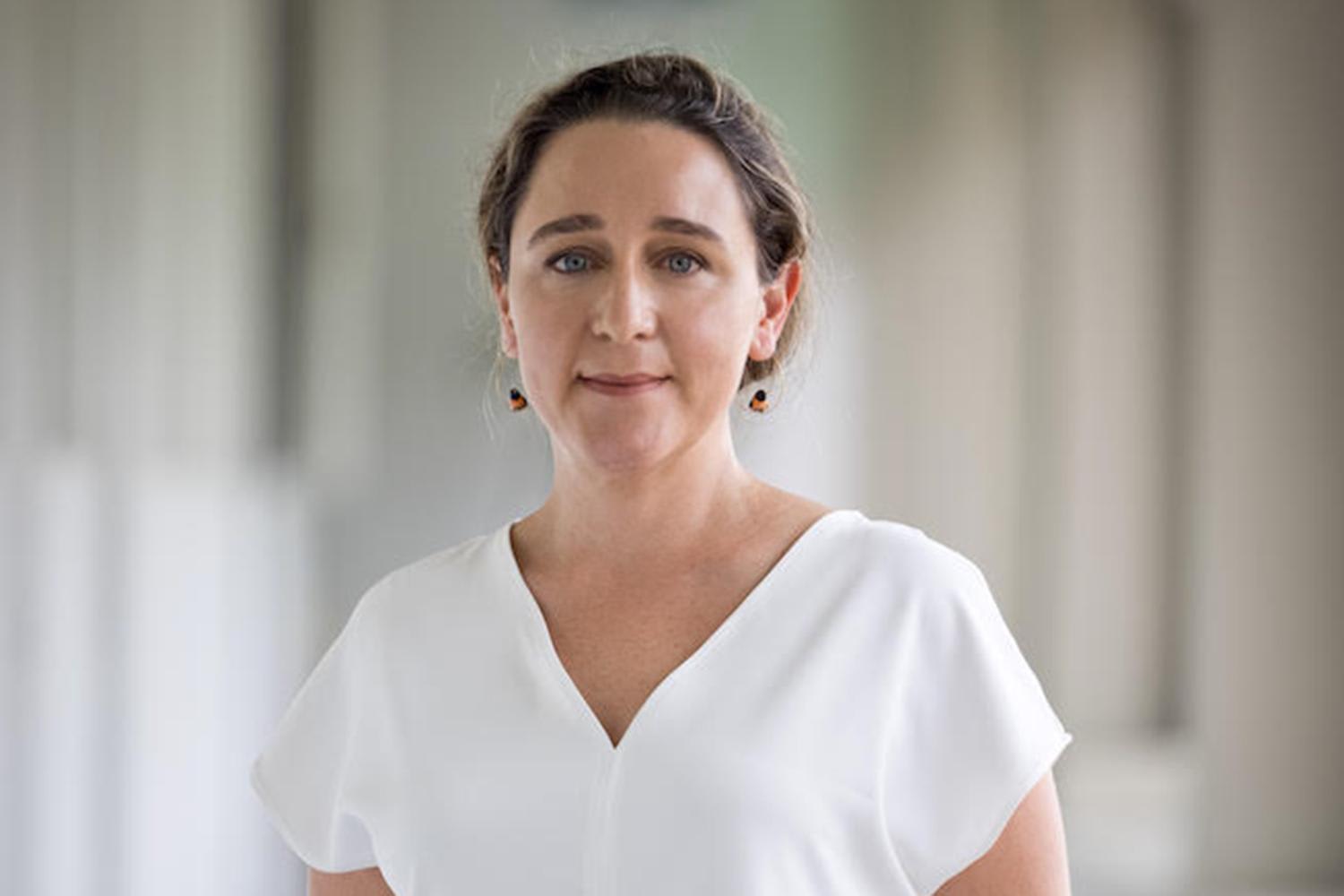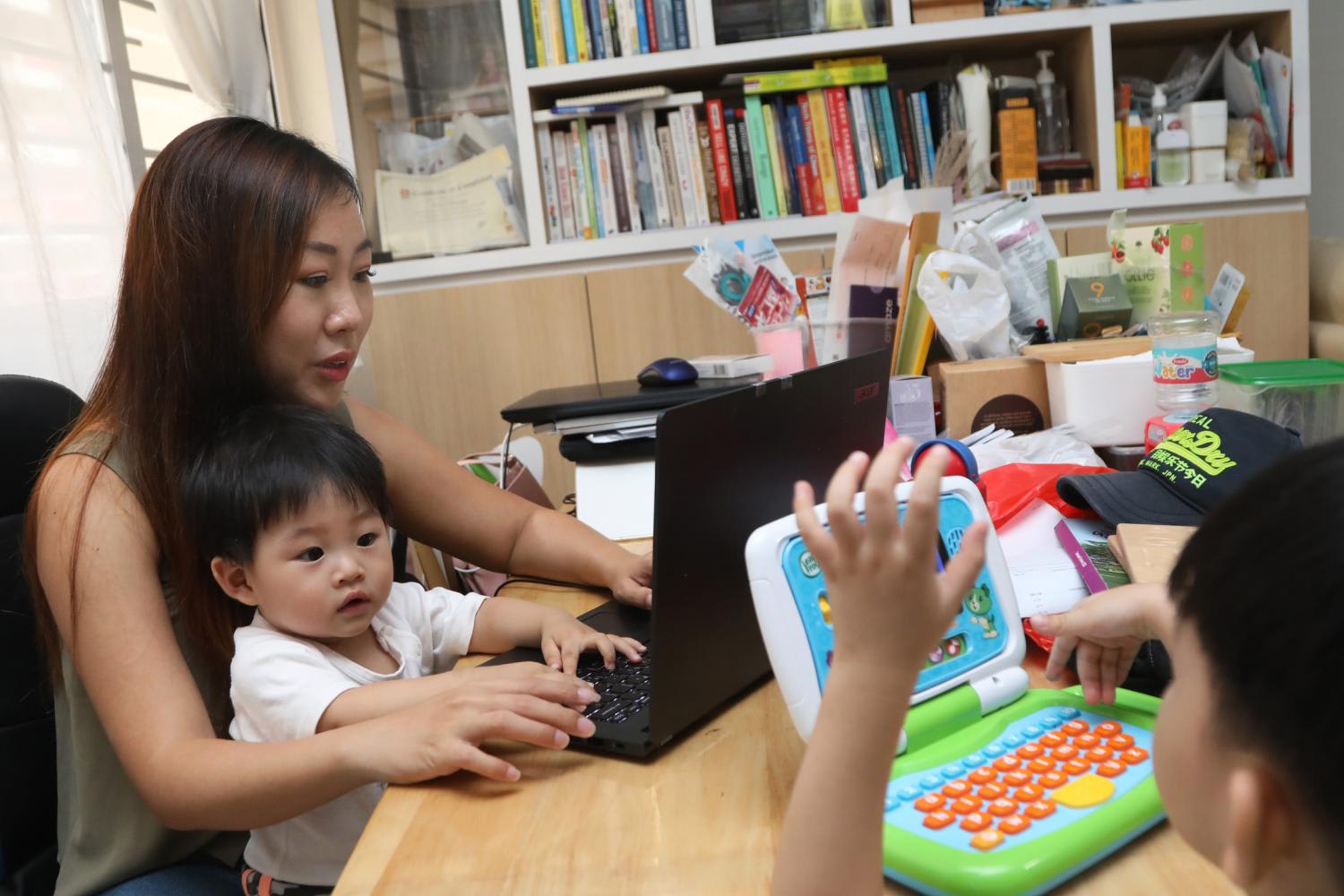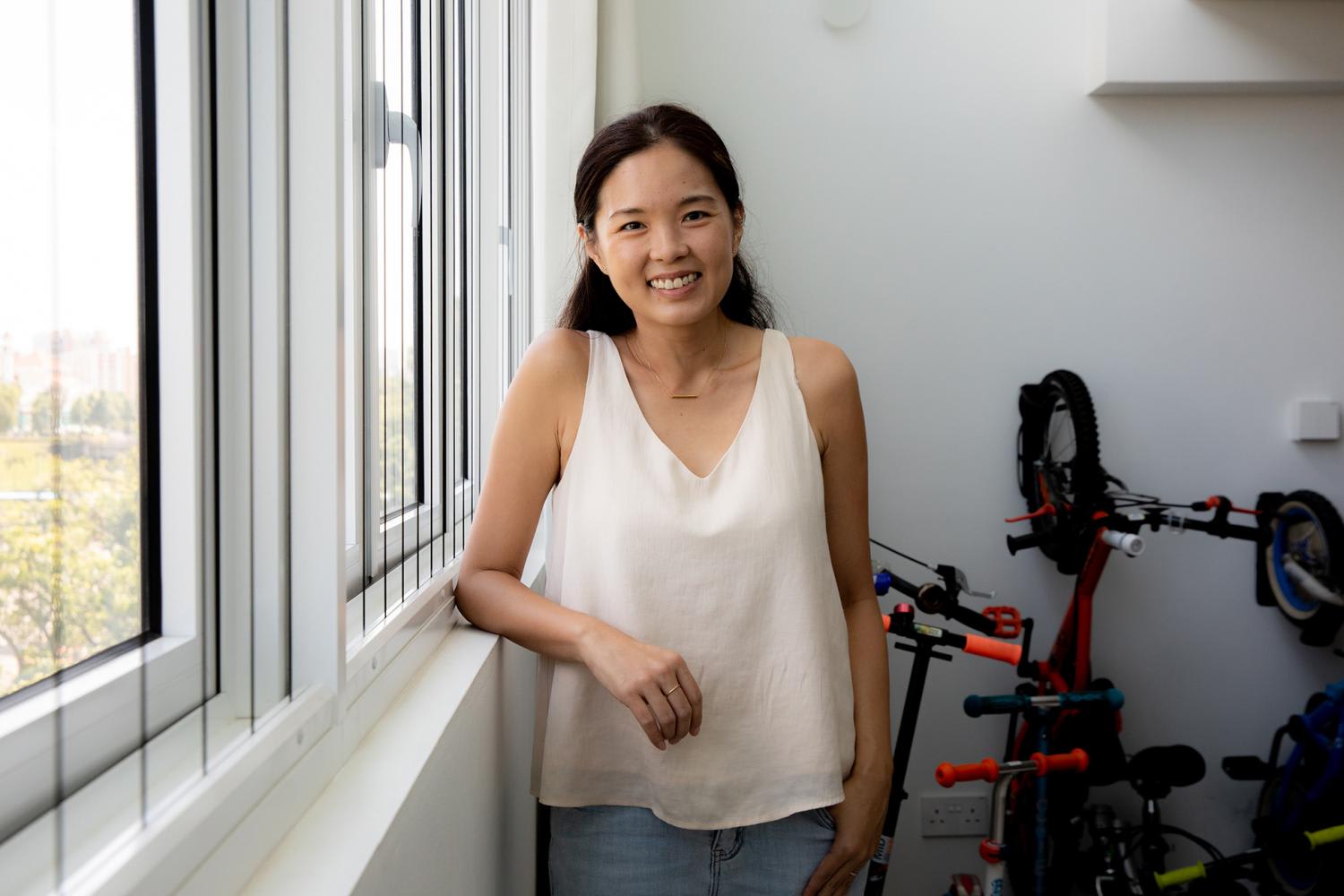Woman Up: Aspiring to be a 'supermum'? The pursuit of perfection can do more harm than good

The Government's White Paper on women's development, which was submitted to Parliament earlier this year, laid out various ways that public policy can and should be used to promote gender equality in Singapore. But policies can only go so far if mindsets don't change.
In this four-part Woman Up series, TODAY takes a look at the ways in which societal biases and perceptions are still holding women back from true equality — and why it's a problem men should also care about. This is the third instalment, which looks at the "supermum" phenomenon. The first instalment was on the role of women at home and the second instalment on gender equality in the workplace.
- A 2021 survey found that six in 10 mums in Singapore surf the internet whenever they can catch breaks, while over seven in 10 mums use the internet before bed at night
- It also found that mothers would spend an average of three hours per day on social media
- Among the social media content that mothers consume are those from influencers who curate their content to present themselves as "supermums" — someone who excels in all her roles
- However, experts say this creates an unrealistic portrayal of what motherhood should be
- Experts also pointed out that being too perfect as a mother is detrimental to a child's development and also to a mother's well-being
SINGAPORE — Ms Shakirah Noordin thumbs through her social media feeds to destress after a long day of work and having to take care of her three-year-old daughter.
But what is meant to be a time of mindless scrolling inevitably ends with the 31-year-old freelance tutor feeling more stressed out and agitated.
Her feed, which is filled with visual narratives of mothers playing with their children while simultaneously juggling a new business or running a non-profit, constantly leaves her with the nagging feeling that she is inadequate as a parent.
“You see people do all these fun activities with their kids like taking them to the playground in the morning and you’re like, ‘Wow, I need to keep up. I need to expose my kid to this, too'," Ms Shakirah said.
"Where do these 'mumfluencers' find the time to do all of that? I'm already so weighed down by my job.”
For the uninitiated, a "mumfluencer" refers to a mother who has accrued a large social media following and typically portrays herself as a “supermum”, or a mother who is successful at work and has a beautifully decorated and neat home, where she whips up Instagrammable meals every day.
Mothers who spoke to TODAY highlighted other examples of social media posts that often leave them feeling demoralised.
These include mothers who talk about their ample breast milk supply; those who have little trouble losing weight after giving birth even without exercising; or those who draw attention to the various activities or teaching methods their children get.
THE 'SUPERMUM' REBOOT
Experts interviewed by TODAY said that although the "supermum" phenomenon is by no means new, the advent of social media has made it harder for women to escape such pressures given the easy access to women flaunting their achievements in motherhood online.
Dr Shefaly Shorey from the Alice Lee Centre for Nursing Studies at the National University of Singapore, whose research revolves around family and women’s health, has been carrying out studies with parents since 2009, when social media was still in its nascent stage.
New mothers who had little exposure to social media then were already found to be feeling overwhelmed because they were comparing themselves with other mothers from their family or circle of friends, Dr Shorey said.
“With social media, it becomes even more evident now because rather than waiting to hear from someone, you open the app, and you see (these instances for yourself).”
A survey conducted in February last year by the Asianparent website found that despite the time constraints that mothers face, their exposure to social media is high.
The survey of 600 mothers sought to understand how Singaporean mothers use digital services and consume digital content.
It found that more than six in 10 mothers surf the internet whenever they can catch breaks and more than seven in 10 mums use the internet just before bed.
As for what these mothers surf the most, the survey found that it was social media where they spend an average of three hours each day.
WHEN LOOKING UP TO A ROLE MODEL TURNS TOXIC
Ms Silvia Wetherell, a perinatal mental health counsellor with Alliance Counselling, said that when a mother is bombarded many times a day with images and videos of what the “perfect mother” looks like, this information becomes a reference point for how she appraises her own behaviour.

“She will most likely perceive herself as inadequate and failing in some way. The more exposure to social media’s unrealistic standards, the higher the bar and the harsher the self-criticism,” Ms Wetherell said.
“Social media has raised the bar to absolute perfection: You need to excel in all your roles — mother, wife, friend, career woman — and look great while doing it.”
While acknowledging that mothers could sometimes grow in a positive way by modelling themselves after other mothers they see on social media, Ms Wetherell said that based on her experience in counselling mothers, she has found that such exposure has mostly had a toxic impact, leaving most of her clients feeling moody and anxious.
“Social media has raised the bar to absolute perfection: You need to excel in all your roles — mother, wife, friend, career woman — and look great while doing it.Ms Silvia Wetherell, a perinatal mental health counsellor”
She added that the some mothers tend to be more affected than others.
These include first-time mums who are still building confidence in the new role; perfectionists who already tend to be overly self-critical; and women who are isolated, lacking support and reassurance, or do not have healthy mother role models in their lives.
A 'GOOD ENOUGH' MOTHER IS THE BEST KIND OF MOTHER
Experts pointed out that mothers should consider that being a "perfect" mother could do their children more harm than good.
For example, when social media exposure leaves them moody and anxious, it will take a toll on their ability to be present with their children and make choices that align with their own family's values, they said.
Ms Wetherell pointed out that "a 'good enough’ mother is the best kind of mother”, referring to a phrase coined by the late British paediatrician and psychoanalyst Donald Winnicott in 1953.
Winnicott, who was influential in the field of developmental psychology, observed thousands of babies and their mothers, and came to the conclusion that babies and children benefit when their mothers fail them in manageable ways.
In essence, Winnicott's concept states that a "good enough" mother recognises that it is not possible to be empathic, available and immediately responsive to her child at all times.
While she attends to her child's needs quickly during the early months, this gradually lessens over time as the child learns to deal with them on his or her own.
This in turn allows the child to learn to live in an imperfect world and thrive as the child grows up.
In contrast, the perfect mother tries to meet the child's every needs, which prevents the child from learning how to deal with frustrations.
KEEPING IT REAL
Other experts said that mothers should take social media posts with a grain of salt and remind themselves that what they see is not necessary the whole truth.
Ms Dawn Cher, 32, who is better known as the financial blogger SG Budget Babe and has around 12,900 followers on her Instagram account, admitted that there are struggles she has as a mother and her followers are unaware of them.
The mother of two boys aged one and four said that, like many other mothers, she often feels stretched to the limit juggling work and driving her children everywhere for various activities and chores.
“Of course, there are also the constant meltdowns and tantrums, the fights,” she added.

Ms Cher did not talk about the struggles she faced during her first pregnancy and her postpartum issues widely, but she recently decided to open up about her challenges with breastfeeding her second child as well as her weight loss struggles following childbirth because she got “tired of all the pretences on social media”.
“After I started sharing, many mothers reached out to me to thank me for helping them to realise that they were perfectly normal for not being able to produce enough milk or lose weight as well,” she said.
"People tend to show only the best side or the happy moments on social media, so it gives the impression that things are seemingly perfect all the time."
This, she said, only creates unrealistic expectations for mothers and increases feelings of "mum guilt" — that is, feelings of not doing enough for their child — and makes mothers question their parenting choices.
A simple way of dealing with the pressures of being a "supermum" is to distance oneself from people and social media accounts that have a negative effect on one's mood, experts said.
Ms Wetherell said that mothers should set boundaries for their social media consumption and dedicate more time, energy, and attention to loved ones instead.
"Social media can feel like a way to switch off, but the data consumed is often not very beneficial. You might be better off watching a show on your phone."
ADVICE FOR MOTHERS
Apart from cutting down on using social media, what else can mothers do?
Mother-of-two Amanda Ong, who used to strive to be the "perfect mother", has found that what helps her the most is by having honest conversations with other mothers.
Ms Ong, 31, who started the Aunty mobile application that matches parents to nannies, said: “I learnt to recognise that it is not healthy and it shouldn’t be the norm to be able to do everything.”
She came to this realisation when her domestic worker had to leave Singapore suddenly and her confinement nanny cancelled on her, leaving her alone with a newborn and a toddler.
Her husband helped but was often called away for work, while her immediate family members were unavailable for various reasons.
After she let her guard down and spoke openly about her difficulties with other mothers — users of her app, as well as friends — she realised that she was not alone, which made her feel better and less alone in her journey.
“There were so many people going through the same thing, feeling helpless, not knowing where to get the help when they need it.”
“There were so many people going through the same thing, feeling helpless, not knowing where to get the help when they need it.Ms Amanda Ong on opening up with other mothers about her parenting struggles”

Mrs Sarojini Padmanathan, a member of the Alliance for Action to Strengthen Marriages and Family, agreed with Ms Ong’s sentiments that women should not feel like they have to be able to do everything.
The reality, she said, is that modern women have much more to manage these days compared to their mothers or grandmothers, as they often have to manage careers on top of their households.
She said that women should look to their husbands to help with the load, instead of trying to carry the burden themselves.
Several husbands interviewed by TODAY for a previous instalment of this series said that they want to help more, but face difficulties while trying to contribute to caregiving and household management because their wives do not want to give them the space and opportunities to do more.
Ms Kanak Muchhal, who is part of the women’s strategic development team at charity organisation Daughters Of Tomorrow, said that it is also about managing one's expectations and letting go of "mum guilt".
“Changing expectations that we (mothers) set for ourselves can be a starting point. Aim for what works for you rather than trying to meet what you think others are expecting,” she added.
For example, something as simple as ordering food in, rather than cooking, should not be viewed as unacceptable to mothers if they are busy.
Dr Shorey said she often tells mothers that what is important is being able to give their full attention and love to their child and their loved ones, even if it means forgoing that home-cooked meal.
“I think that’s the most beautiful thing you can achieve — being sensitive to your child’s needs every day.”
“(We need) to learn to view ourselves with self-compassion and the same kindness we afford our children. It’s completely okay to have bad days as a mum.Dr Kamini Rajaratnam, a psychiatrist with an interest in perinatal psychiatry”
Mums should also check in on themselves and prioritise their own needs and health, the experts said.
Dr Kamini Rajaratnam, a psychiatrist with an interest in perinatal psychiatry, said: "(We need) to learn to view ourselves with self-compassion and the same kindness we afford our children.
"It’s completely okay to have bad days as a mum."
Ms Yang Jingyi, a mother of three boys aged three to 10, said that mothers should realise that managing a family is hard enough and there is no need to feel guilty about ever falling short.

“In reality, every mum has her own struggles,” the 39-year-old said. Ms Yang is the founder of A For Apothecary, a business that specialises in skincare products for babies.
“We are all muddling through it every day,” she added.










